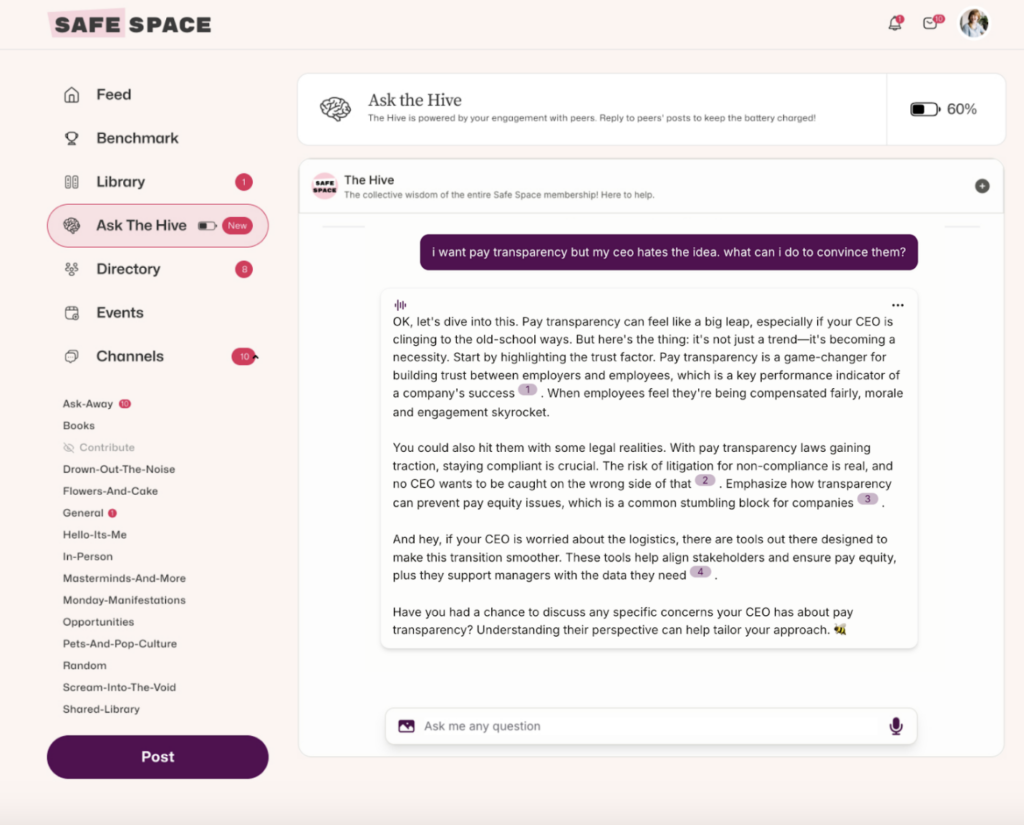
✍ How do we talk to employees about using their expiring leave before the year ends? How can we get leadership on board with encouraging leave use?
Context: We are a government agency and have strict rules about the amount of leave that can be carried over — there are NO exceptions. Many employees have leave they have earned expiring (we don’t get a set amount, it accrues) but leadership can be hesitate to mass communicate about the issue and have too many people out at once.
Jessie Fields, Director of Talent Development & DEI at C2FO:
Assuming you’re in the US (sorry if you’ aren’t!), more than half of American’s (55%) don’t use all of their PTO. And of the ones that do, 52% report working through their PTO!! Safe to say, we have a PTO problem, and attitudes like those of your leadership team don’t help.
I think it’s more than appropriate to draft a year-end communication that includes any reminders employees might need to know as they close out their year – leaves accruals don’t roll over, benefits cut over Jan. 1, etc. And include the relevant policy and process, like if they need to request PTO from their manager ahead of time. A communication like this is a really important way to showcase your culture in action – how much you care for the wellbeing of your team members and that you uphold these policies for a reason.
And then you can try a more proactive approach next year. Get creative with it! Do a comms campaign on Jan, 25, which is National Plan for Vacation Day. Encourage employees to share pictures and stories from their vacations. Ask leaders to model healthy time off behaviors by truly unplugging while on PTO.
We’re all adults. Neither you or your leadership team can control how people use their leave. But we’re also not machines, and the culture we create can encourage healthier PTO practices so we don’t burn out.
After all this, I hope YOU are taking some time off for yourself to recharge and take care of yourself. Good luck!
Cherylynn Mazura, Head of HR – US and Canada at Tata Consumer Products:
I always tell people that their paid time off is not a perk but it is their right and part of the package they signed up for. Your LT would need to get on board with this thinking. Fun memes about vacation work really well – I also communicate it heavier during the last few months of the year. Data helps me find the really hot spots and work with those leaders directly

✍ I am salaried employee and work about 48-52 hrs/week. Mgt wants me to take PTO if I take time for an appt during work hours. Seems wrong since I am consistently working 40+ hrs/week. Is this normal?
Context: I am a nurse case manager for surgical oncology in large academic medical center. See patients 2-3 days/week & WFH the remaining days. 10 hour days 5 days a week. Do employees who are salary have any protection when working consistently above 40 hrs per week in regards to PTO, breaks, lunch breaks, etc.?
Alex Clermont, Director of People and Operations at TDC:
JOIN 150K+ HR LEADERS
Get insights, learnings, and advice on how to build companies and cultures that people actually love.
No spam. Unsubscribe any time.
This can vary by state, so check with someone who knows your state laws, particularly if you’re in California. But federally, no, unfortunately.
Just to add for clarity that full day of pay can still be taken out of your PTO bank. But as long as they aren’t docking your salary it’s legal most places. Frankly PTO isn’t mandated at all in most of the US, so the laws around it are pretty light. But some states have much more rigid employee protections. As to your question about it being normal – yes, healthcare in particular is notorious for this, but that doesn’t make it right and if you have any leverage to push back I encourage you to do so.
Laura García-Courrau, Global Director of HR at Our World Energy:
This one is difficult, and Alex is right, it is dependent state by state. Connect with an employment attorney to explain the requirements for your specific states. As it pertains to FLSA law, as a salaried employee, if you work any amount on the day of the appointment, you are entitled to your full day of pay. However, consult w/ someone who is knowledgeable in employment law in your state/municipality.


